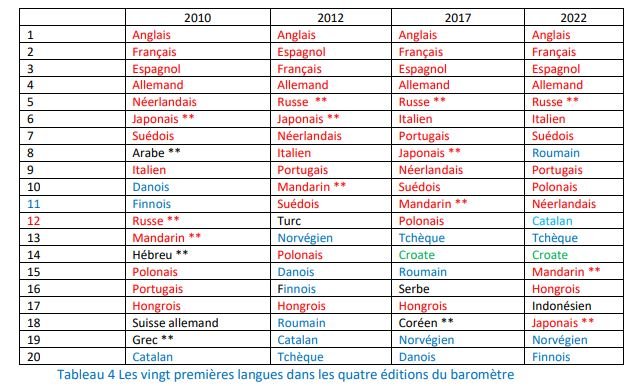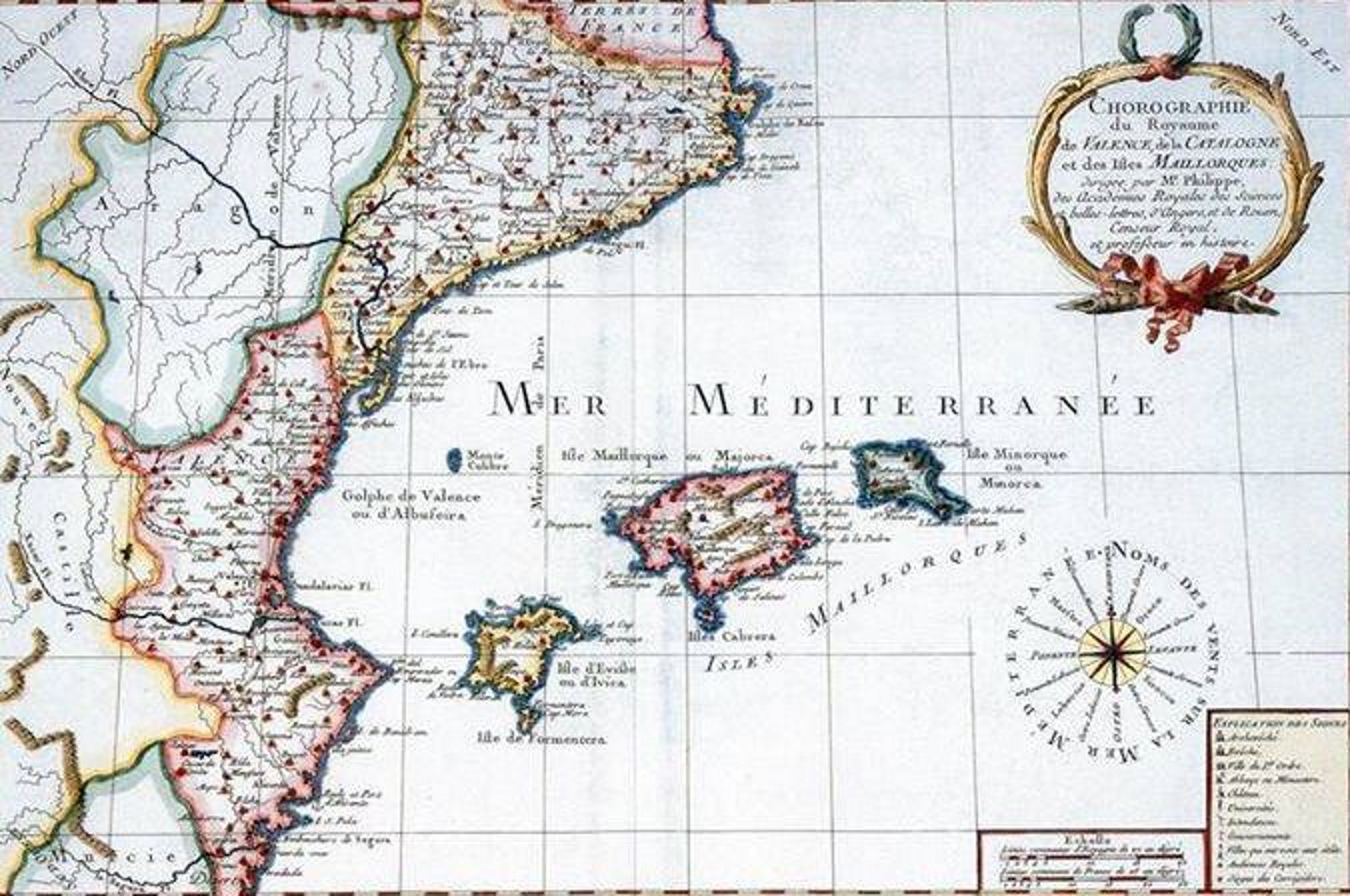Despite the debate about its social use, the Catalan language has been climbing positions since 2010 in the ranking of the 20 most important languages in the world, according to the barometer drawn up by the French ministry of culture, referring to 2022. The report does not simply take into account the number of speakers of each language, but incorporates other criteria, such as the role that each language has in society and its presence on the internet. Based on these assessments, in 2010 Catalan was in position number 20 in the world, just behind Greek. In 2012 it gained a position and came in at number 19, ahead of Czech and behind Romanian. In 2017 it disappeared from the ranking of the 20 most important languages, coinciding with the politicization that was the climax of the independence process, and in 2022 it has jumped to position number 12, just behind Dutch. In the ranking, Catalan has come out ahead, in terms of influence, of languages such as Mandarin Chinese, Japanese and the Scandinavian languages.

Catalan obtains a grade of 6,729 points, and with this it is placed as the twelfth ranked language in the world in its overall weighting. Despite the fact that, based on the number of people who speak it, Catalan stands out as the language with the lowest index of the overall top fifteen, and also as the one with the lowest status in that group, other factors make it rise as an influential language . This is because Catalan has a higher index than English, French, Spanish and Russian in terms of internet penetration, based on the proportion of speakers in a language that generally use it on the internet. The Catalan language also has a good position in the human development index, which measures the degree of socioeconomic development in the area where a language is spoken based on UN data. And finally, it also cites the case of Wikipedia, and the authors of the barometer calculate that Catalan has a higher index than languages that are more widely spoken, in terms of the number of articles.
The most important languages in the world are English, French, Spanish, German, Russian and Italian, although the last-named has far fewer speakers than the others in this group. This lower numerical weight is offset by the global importance of Italian culture, and because the language is used in Italy and the Vatican. In the case of Spanish, there has been a setback, in as much as in 2012 it was in second place ahead of the French, but in 2022 it returned to third place. There have been significant changes in the barometer since the 2010 edition, because at that point Dutch was very strong - in 5th position - and now it is only just ahead of Catalan. Arabic (8) and Hebrew (14) were then among the most important languages, but both disappeared from the ranking after that year. The French ministry of culture has drawn up this ranking based on a total of 6,102 languages.
The measurement system indicates that in all editions there is a clear dominance of languages that use the Latin alphabet. In 2010, six of the top-ranked languages used another graphical transcription system (Japanese, Arabic, Russian, Mandarin, Hebrew, Greek), but this fell to three in 2012 (Russian, Japanese, Mandarin) before reaching four in 2017 (Russian, Japanese, Mandarin, Korean). In the latest version, which introduces the graphics system as a new factor to be taken into account, Korean has disappeared from the ranking and while Russian remains in fifth place, Mandarin and especially Japanese fall back significantly. The barometer was drawn up by Alain Calvet, doctor of science and Louis-Jean Calvet, doctor of letters and human sciences, and professor of linguistics.

